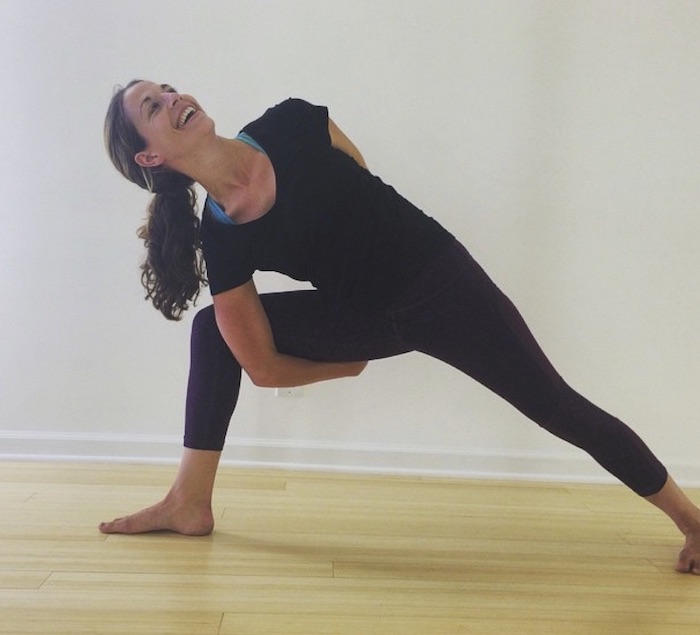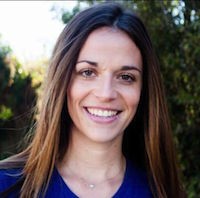
“You have to love yourself because no amount of love from others is sufficient to fill the yearning that your soul requires from you.” ~ Dodinksy
~
In the circles I frequent, the blogs I read, the Instagrammers I follow, the friends I keep, the concept of self-love receives a lot of attention.
I am often reminded:
“Your relationship with yourself, Whitney, is the most important relationship you will develop in your lifetime.”
Our relationship with ourselves, in our skin, our bodies, flesh, and souls, sets the tone for all other relationships in our life. Often, how we do (or do not) love ourselves, determines the type of people we attract and the type of love we gravitate towards. When we do not love ourselves and seek self-love externally, we can set ourselves up for all sorts of unhealthy relationships and patterns.
Yet while “self-love” is uttered and written about frequently, it’s infrequently understood. It’s blasted over the airwaves so much, it begins to lose its meaning. Or perhaps even if it was perfectly defined, practicing or working toward self-love can feel ephemeral at best. We grasp it only for a moment, but understanding dissolves just as quickly as it came.
There’s an important distinction to make: understanding things at a cognitive (brain) level is quite different than understanding them deep in our hearts and souls. The former does not, necessarily, lead to the latter. I’ve learned this the hard way. No accumulation of reading blogs, self-help books, or liking Instagram posts beaming with self-love and radiating heart emojis are a substitute for one’s own journey of understanding what self-love means, on a deep, soul level. These practices certainly help, but in isolation cannot teach us.
Practicing self-love illuminates the disconnect between brain and heart, between body and soul.
How do we begin? How do we grow to understand, deep down in our bodies, bones, and souls what it means to love thyself?
For starters, self-love is a practice. It ebbs and flows. There is no end point or a starting line. We can all grow in our relationship with ourselves until the day we die. The nature, quality, texture, and meaning of self-love are shaped by our stage of life, our religious and spiritual beliefs, our race, ethnicity, sexuality, and gender. I cannot fully define it for any one of us. I can, however, open a small window to shed light onto how I’ve grown to understand it, where I’ve struggled, and what I’m learning as I walk along this path.
Self-love is not something I pretend to have perfected or achieved. It is a continuous process of learning and unlearning. It’s that age-old conundrum: the more we know about something the less we seem to know. Much like yoga, it is a practice, not a destination.
My musings with self-love birthed out of a decade-long battle with myself. It is from this place I hope to illustrate what self-love is, what it is not, and how we cultivate it in our lives.
From my early teenage years until well into my 20s I battled disordered eating. Some clinicians would say I met criteria for an “eating disorder.” I am cautious with my distinction between “disordered eating” and “eating disorders.” Throwing a label on what I struggled with is not helpful in understanding what I truly suffered from: a broken relationship with myself, a relationship in which I did not love myself. I looked to people outside myself to fill me up with the love I deeply craved.
I looked to conditional love: numbers on a scale, times on a track, perfect grades, accolades, and approval from my parents, friends, and men, especially, in intimate relationships. I sought the love from them I had not learned to give myself. I gave others the power to determine my worth. I tasked others with the responsibility of making me feel loved and whole inside. When men came and went, my body was injured, or friends and family disappointed, I felt empty. A foundation built on others, who do not also fully love themselves, is a precarious place to build a sense of self-love from.
Self-love was predicated on things outside of me. But, by definition, self-love must not emanate from outside. It comes from within.
A lack of self-love can manifest as many things. For me, it manifested as disordered eating patterns, struggles with body image, and unhealthy relationship choices through much of my adolescence and well into my womanhood. For another, it may manifest with other cycles of addiction, substance abuse, unhealthy or codependent relationships, workaholism, or the constant need of approval from others.
The root cause is the same: we do not love ourselves. We turn to external forces and maybe even cling to them for validation. In their absence, we fear how we will fill those voids and, in turn, feel loved.
I thought my battle with self-love ended as soon as I gained weight following a more obvious “eating disorder” in high school. Weight is rarely a good indication of how much someone does or does not love themselves. A “normal” weight tells us little about how much someone loves herself. Self-love is not “I can love myself when I achieve (insert long series of contingencies).” Conditional self-love is not self-love at all.
Self-love is about the messages we send ourselves when no one else is listening. Self-love is not internal dialogue steeped in guilt and shame about not living up to others’ expectations of being in this world. Self-love is loving all aspects of ourselves, darkness and light, shadows and beauty.
Self-love is embracing all of our being.
Self-love is letting go of relationships that degrade your own concept of love for yourself.
Self-love is loving out of a place of love, not a place of fear and need.
Self-love is knowing when to walk away from that which is no longer serving us.
Self-love is knowing we are deserving of unconditional love.
Self-love is not absent of fear but it walks into fear with grace and gentleness.
Awareness is an important starting place in the practice of self-love because with awareness comes an opportunity to shift. Recognizing where I was in my own journey of loving myself was a helpful (albeit painful) starting place.
My awareness initially came through a profound practice a therapist shared with me some years ago. I strongly encourage anyone curious about delving deeper into the waters of self-love to explore it.
He asked me to stare into a small, handheld mirror. (And yes, personal therapy can be critical in this process.) He asked a group of my peers to do this: sit silently and stare deeply into your soul, your own eyes, your essence, and notice what you see. Sit quietly with yourself.
He allowed us time to reflect, and for writing and journaling when the practice was over. It was enlightening. When I stared into the mirror, I did not see myself. I saw pieces of a body. Fragments of a whole. I heard a deep voice of self-criticism. I saw unruly hair, uneven eyebrows, and blemishes on my skin. I struggled to see my own humanity. At 27-years-old, as salty tears ran down my cheeks many years after my initial bouts with disordered eating, I realized: the “eating disorder” was gone but I still didn’t love myself.
It’s also important to say here that self-love is not a selfish act. We cannot give what we do not have. And we cannot love another if we do not love ourselves. Loving ourselves is not mutually exclusive from loving others deeply and receiving their love in return. Receiving love can be bountiful when its presence is not mere validation to fill an internal void.
I invite you into this practice, perhaps starting with something simple, such as writing a list of things you love about yourself. It’s more difficult than you’d imagine. Or maybe meditating on a mantra of self-love that resonates with you, like: “I love me, just as I am. Perfectly Imperfect.” Perhaps the mirror exercise resonates.
Connect with a person or people in your life that embody self-love. As a young child, I developed a close relationship with my Godfather. He chose not to marry until much later in life and never had (biological) children, although he helped raise me as if I were his own. He embodies self-love on many levels and became one of my profound teachers on the practice of self-love.
On his 50th birthday, the theme of his party was simple: love. He’s always been about love. He teaches me pure unconditional love through his example of loving me through every stage of life, even when it felt challenging for me or those closest to me to do so. Embodying true self-love does not mean we have to go it alone and that others cannot help us understand what it means to love ourselves.
Lastly, I recommend connecting with a deeper source of love, a divine love, an unconditional source of love. A love that is not steeped in conditions and contingencies. A love that does not waver even when our own notions of self-love waver.
I still stumble in this journey. Perhaps this notion of self-love is one that truly highlights the distinction between knowledge and wisdom. Knowledge is knowing something to be true. Wisdom, then, is the ability to implement and to apply this to our lives.
For me, wisdom means showing up in my life and relationships as a woman who loves herself deeply, even when societal messages, friends, family, or whomever make me doubt that for a moment. We know in our minds we should love ourselves. Perhaps wisdom involves taking one step further, delving deeper into our souls and connecting with what it feels like to truly love ourselves, imperfections, flaws, demons, and beauty. Wisdom is application.
When we practice self-love, we create space for an abundant, freely flowing love from others in our lives, a love that reciprocates the deep love we feel for ourselves. It does not replace it nor erode it, it merely allows our own practice of self-love to grow ever more abundantly.
~
Author: Whitney Easton
Image: Author’s Own
Editor: Travis May

 Share on bsky
Share on bsky




Read 1 comment and reply